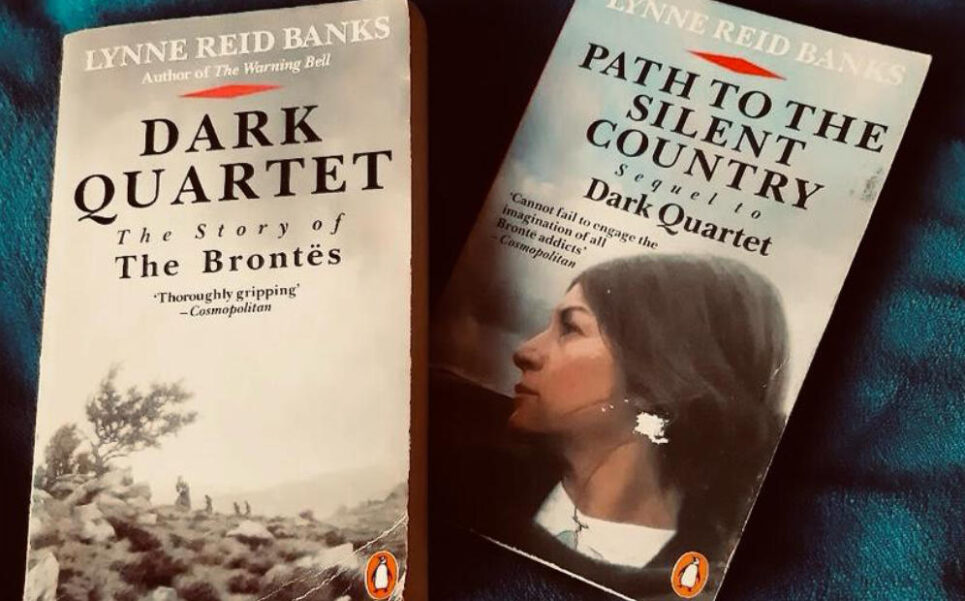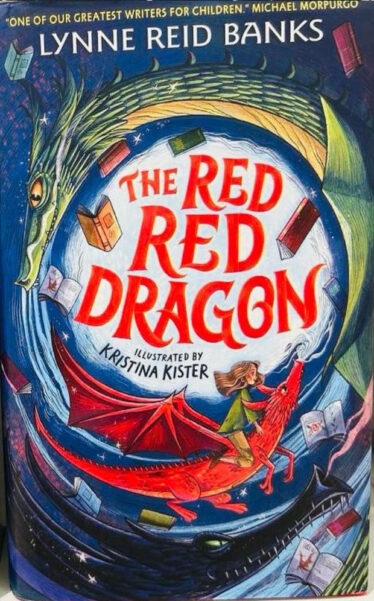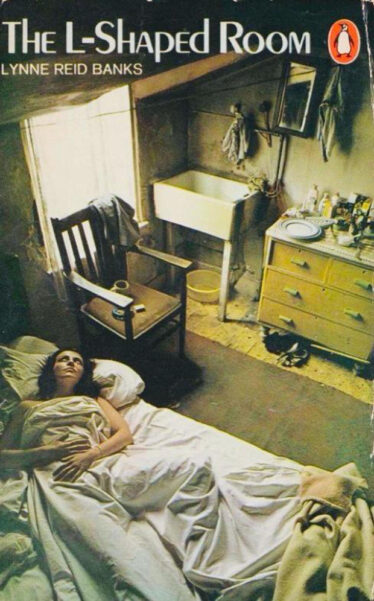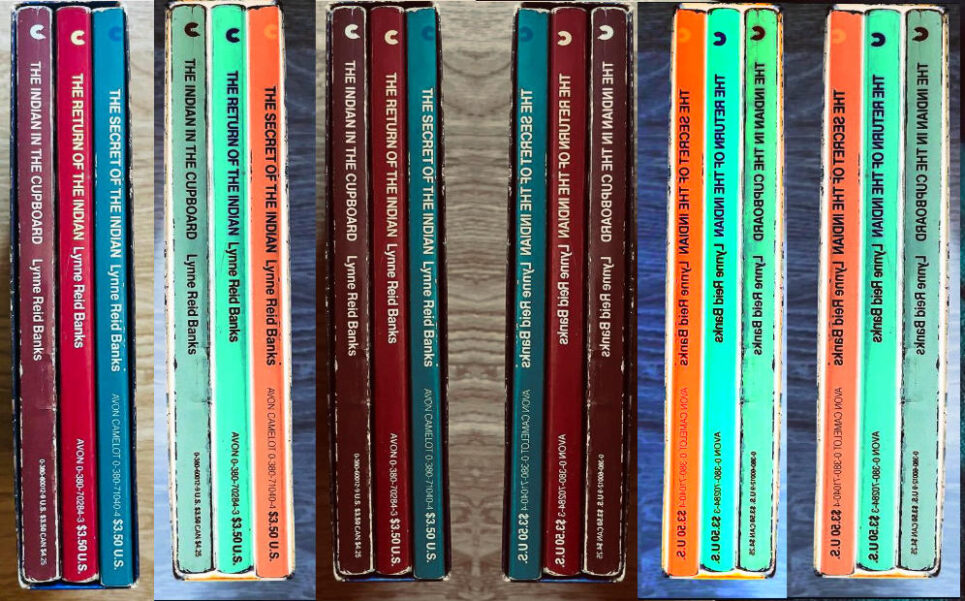Certain authors possess the remarkable ability to capture the hearts and imaginations of readers across generations. Among these, we find Lynne Reid Banks, a prolific writer whose works have enthralled audiences with their depth, insight, and timeless appeal. She wrote many different works of literature, from beloved children’s classics to thought-provoking adult fiction. Her diverse body of work continues to resonate with readers around the world.
About her
Lynne Reid Banks was born in Barnes, southwest London on July 31st, 1929, and recently passed away on April 4th, 2024. She was the only child of doctor James and actress Muriel Reid Banks.

During World War II, she was evacuated with her mom and cousin to Saskatoon, Saskatchewan, Canada. When the war was over she returned to England.
Before becoming a writer, she was an actress, attending drama school. In 1955 she began working as a television journalist at ITN, one of the first women to do so in Britain. However, Banks felt she was pigeonholed into writing about certain subjects, and was often put to work writing scripts.
After her short career in journalism, she transitioned to writing fiction. Time after, she published her her debut novel, “The L-Shaped Room,” in 1960. It was a massive success. The novel garnered critical acclaim for its candid portrayal of a young woman navigating life as a single mother in 1950s London, earning Banks the attention of readers and critics alike.
Her decision to move to Israel was driven by a desire for adventure and a thirst for new experiences. In 1962, Banks emigrated to Israel, where she taught for eight years on a kibbutz, Yas’ur. In 1965, she married Chaim Stephenson (1926–2016), a sculptor, with whom she had three sons. Although not Jewish, she became an Israeli citizen.
“The very people you trust most could become like strangers in the longing” – Lynne Reid Banks
Although the family returned to England in 1971, the influence of her time in Israel can be seen in some of her books which are set partially or mainly on kibbutzim.
It is important to understand that her time in the Middle East profoundly influenced her views and her writing.
The rich tapestry of Israeli society provided Banks with a wealth of material for her writing, as she immersed herself in the cultural, political, and social dynamics of the region.
One of the most profound influences of Banks’ time in Israel was her exposure to the realities of the Israeli-Palestinian conflict, which left an indelible impression on her and informed much of her later writing. In novels such as “One More River” and “The Writing on the Wall,” Banks grappled with the complexities of the conflict, exploring themes of identity, belonging, and the quest for understanding and reconciliation.

Banks’ experiences in Israel also deepened her appreciation for the power of storytelling as a means of fostering empathy, bridging divides, and illuminating the shared humanity that unites us all.
In addition to shaping her thematic concerns and narrative sensibilities, Banks’ time in Israel also influenced her approach to character development and storytelling techniques.
Drawing inspiration from the resilience and determination of the people she met in Israel, Banks created characters who grappled with adversity, confronted their fears, and forged connections with others in the face of uncertainty and upheaval.
Her first novel, The L-Shaped Room, published in 1960, was an instant and lasting best seller. It was later made into a movie of the same name and led to two sequels, The Backward Shadow and Two Is Lonely. Banks also wrote a biography of the Brontë family, entitled Dark Quartet, and a sequel about Charlotte Brontë, Path to the Silent Country.
In October 2013, Banks won the J. M. Barrie Award for outstanding contribution to children’s arts.
A master storyteller
Lynne Reid Banks embarked on a literary journey that would span decades and enchant readers of all ages.
It was with her foray into children’s literature that Banks truly solidified her reputation as a master storyteller.

In 1968, she published “The Indian in the Cupboard”, the first installment in a beloved series that would captivate generations of young readers. The novel tells the story of a young boy named Omri who discovers that a plastic toy Indian comes to life when placed in an old cupboard, leading to a series of magical adventures that explore themes of friendship, responsibility, and the power of imagination.
Through the adventures of Omri and his enchanted toy figurines, Banks explored themes of friendship, responsibility, and the power of imagination, leaving an indelible imprint on the hearts of readers worldwide.
“The Indian in the Cupboard” was followed by several sequels, including “The Return of the Indian,” “The Secret of the Indian,” and “The Mystery of the Cupboard,”. Each of them expanded upon the enchanting world Banks had created. The series earned widespread praise for its engaging storytelling, rich character development, and thought-provoking themes, cementing its status as a modern classic of children’s literature.

In addition, she wrote other children’s novels, including “The Farthest-Away Mountain”, “Melusine: A Mystery” and “The Fairy Rebel” among others. Her ability to craft compelling narratives that resonate with young readers, while also exploring complex themes and moral dilemmas, has earned her a dedicated following and enduring acclaim.
She was a prolific author known for her diverse literary contributions. She was drawn to writing books for children for several reasons, each reflecting her deep understanding of the importance of literature in shaping young minds and enriching their lives:
Her passion for storytelling was at her core. From an early age, she recognized the transformative power of stories to captivate imaginations, impart wisdom, and instill a love of reading.
She understood the importance of speaking directly to her audience, respecting their intelligence, and addressing their concerns and interests in a meaningful way.
A fact that is extremely important is that Banks recognized that literature has the power to shape minds, broaden horizons, and foster empathy and understanding. She believed that books for children had a unique ability to influence young readers during their formative years, helping them navigate the complexities of childhood, understand the world around them, and develop important values and beliefs.
Banks enriched the lives of countless young readers, leaving an indelible mark on the literary landscape and inspiring generations of writers and readers alike.
Feminism through literature
Throughout her illustrious career, Lynne Reid Banks was seen not only as a gifted storyteller but also as a staunch advocate for feminism. She continuously used her platform to challenge societal norms and champion the rights and empowerment of women. She infused her writing with themes of gender equality, female agency, and the importance of women’s voices, leaving an indelible mark on the literary landscape as a feminist trailblazer.

From the outset of her literary career, she demonstrated a commitment to depicting the lives and experiences of women with depth, nuance, and empathy. A perfect example of this was her groundbreaking novel “The L-Shaped Room”.
Banks shattered taboos by exploring the experiences of a young single mother living in 1950s London. Through the protagonist Jane’s journey of self-discovery and resilience, Banks challenged societal expectations of women and motherhood, shining a spotlight on the struggles and triumphs of single mothers in a patriarchal society.
Banks’ feminist sensibilities were further evident in her children’s literature, where she crafted stories that celebrated the strength, intelligence, and agency of her female characters.
In “The Indian in the Cupboard” series, for example, Banks introduced readers to strong-willed and resourceful young girls such as Omri’s sister, Gillon, and later, Patrick’s friend, Lucy, who played integral roles in the adventures alongside their male counterparts. By portraying girls as active participants in the narrative and agents of their destinies, Banks challenged traditional gender roles and provided young readers with empowering role models to emulate.

In addition to her portrayal of strong female characters, Banks used her writing to address pressing feminist issues such as reproductive rights, sexual autonomy, and gender inequality.
For example, in novels like “One More River” and “The Writing on the Wall,” Banks tackled themes of women’s rights and liberation, shedding light on the struggles faced by women in patriarchal societies and advocating for their empowerment and autonomy.
She also used her platform as an author to speak out on behalf of women’s rights and gender equality. In many interviews, she spoke about the importance of feminism and the need to challenge sexist attitudes and stereotypes in society. Her advocacy extended beyond the pages of her books, inspiring readers to confront issues of gender discrimination and work towards a more just and equitable world for women and girls.
We honor her as a pioneering feminist whose contributions to literature have had a profound impact on readers of all ages. Through her portrayal of strong, independent female characters, her exploration of feminist themes, and her unwavering advocacy for women’s rights, Banks has left an indelible mark on the literary landscape and continues to inspire future generations of feminists and storytellers alike.
Literary Legacy
Lynne Reid Banks’ work has exerted a profound influence on literature, particularly in the realms of children’s fiction and young adult literature.
One of the hallmarks of Banks’ writing was her exploration of complex moral and ethical dilemmas within the context of children’s stories. The characters have to deal with issues such as friendship, responsibility, empathy, and the consequences of one’s actions. As such, Banks encouraged young readers to contemplate and reflect on important moral questions, fostering critical thinking and moral development.

Her novels often feature young protagonists who find themselves in challenging or extraordinary circumstances. A perfect example was Omri in “The Indian in the Cupboard” series or Melusine in “Melusine: A Mystery”. These characters are thrust into situations where they must navigate complex emotions, make difficult decisions, and ultimately take control of their destinies.
In many of her works, Banks celebrates the power of imagination and creativity as transformative forces in the lives of her characters. Through magical or fantastical elements, she encourages readers to embrace their imaginations, explore new possibilities, and envision a world filled with wonder and magic.

Her novels often feature diverse casts of characters from various backgrounds and cultures, reflecting the rich tapestry of human experience.
As a prolific and acclaimed author, Banks has set a high standard for literary excellence in children’s fiction and young adult literature. Her skillful storytelling, vivid characterizations, and thought-provoking themes have inspired generations of writers to create compelling and impactful works for young readers. Through her enduring legacy, Banks continues to influence the landscape of literature and inspire future generations of storytellers.
She had a profound influence on literature by exploring moral and ethical dilemmas, empowering young protagonists, celebrating imagination and creativity, promoting representation and diversity, and upholding a legacy of literary excellence.
Banks has left an indelible mark on the literary world, enriching the lives of readers and inspiring future generations of writers to follow in her footsteps.
Through her engaging and thought-provoking narratives, Banks has enriched the lives of readers and contributed to the ongoing evolution of children’s fiction and young adult literature.
Throughout her career, Banks demonstrated a commitment to crafting narratives that were both entertaining and thought-provoking. Her stories grappled with complex themes such as morality, identity, and the human condition, challenging readers to contemplate the deeper truths of life while engaging them in captivating adventures.
A reflection
As we reflect on her life and work, we are reminded of the transformative power of storytelling and the enduring impact that literature can have on our lives.

Thanks to her literary works, we are reminded of the transformative power of travel, exploration, and cultural immersion.
Through her words, she transported readers to distant lands, ignited their imaginations, and touched their hearts with tales of courage, friendship, and the triumph of the human spirit.
She continously invited readers to embark on their own journeys of discovery, empathy, and understanding, reminding us to transcend the boundaries that divide us.
Though Lynne Reid Banks may no longer be with us, her legacy lives on through the pages of her books, where readers young and old continue to find inspiration, solace, and joy. As we celebrate her contributions to literature, let us honor her memory by sharing her stories with future generations, ensuring that her legacy endures for years to come.


